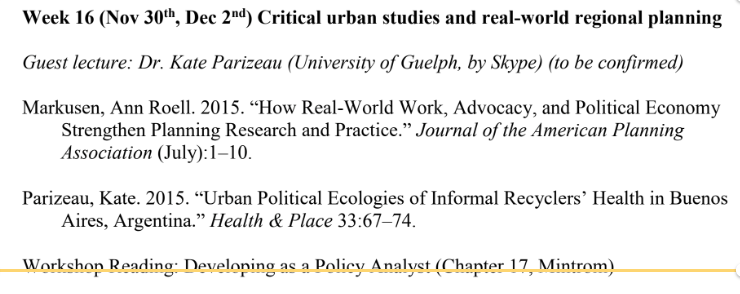
My definition of a great Sunday morning: reading @WmGermano ‘s “Syllabus” with a coffee and a small pack of index cards and my Sharpie pens. 

NOW I get why “Syllabus” by @WmGermano and Nichols resonates so much with me:
I, too, have written about the importance of storytelling and narrative as strategies to structure syllabi.
Many of you may recall my 2016 piece in @ua_magazine
I, too, have written about the importance of storytelling and narrative as strategies to structure syllabi.
Many of you may recall my 2016 piece in @ua_magazine

In this piece I explained how I construct a syllabus as a narrative - where are we right now and where do I want to take my students?
My own thinking resonates with Germano and Nichols' approach, and I'm delighted that wrote about this.
universityaffairs.ca/career-advice/… via @ua_magazine
My own thinking resonates with Germano and Nichols' approach, and I'm delighted that wrote about this.
universityaffairs.ca/career-advice/… via @ua_magazine
I love how @WmGermano and Nichols talk about a syllabus as “a pedagogical contract”.
And yes, syllabi are documents with social and political force.
And yes, syllabi are documents with social and political force.

I have written about the political and social choices we make when we develop syllabi.
raulpacheco.org/2020/02/on-the…
I very clearly and openly and systematically diversify my syllabi.
Doing so is a political statement: "my syllabi/classrooms are spaces of diversified learning"
raulpacheco.org/2020/02/on-the…
I very clearly and openly and systematically diversify my syllabi.
Doing so is a political statement: "my syllabi/classrooms are spaces of diversified learning"
I've been diversifying my students for years. This has been a conscious decision that often goes "against canon". I don't give much thought about who people think should be the canon. Canonical authors are canonical insofar we construct them into being.
raulpacheco.org/2015/07/integr…
raulpacheco.org/2015/07/integr…
One day somebody asked me: "can you teach an Economic Geography for Public Policy/Regional Planning Development class with only-or-majorly women authors?"
I said: "Well, I don't know, can I?"
Spoiler alert: yes, I can. I've done so in Public Policy, Economic Geography.


I said: "Well, I don't know, can I?"
Spoiler alert: yes, I can. I've done so in Public Policy, Economic Geography.



What an absolute delight to be reading "Syllabus" by @WmGermano and Nichols.
An engaging, kind, generous, sweet read on one of the most bedeviled and at times, hated documents of them. A book that can be read at leisure, but also taken as a workbook.
press.princeton.edu/books/hardcove…
An engaging, kind, generous, sweet read on one of the most bedeviled and at times, hated documents of them. A book that can be read at leisure, but also taken as a workbook.
press.princeton.edu/books/hardcove…
Germano and Nichols' writing resonates with my own thoughts on the topic of syllabus construction and development.
I actually now think syllabi are scholarly products that could and should be taken into account in evaluations. They can also be public goods for other professors.
I actually now think syllabi are scholarly products that could and should be taken into account in evaluations. They can also be public goods for other professors.
I share my own syllabi publicly (though I need to be more systematic about this) precisely because I think that there are others coming behind me who might benefit from reviewing how I have taught courses.
I am particularly keen in sharing my syllabi with early career scholars,
I am particularly keen in sharing my syllabi with early career scholars,
... and more importantly, with contingent faculty and graduate students who have a responsibility to teach a course as instructors of record.
I'm a senior professor. It's on me now to make the path of those coming behind me more accessible, easy to traverse. That's why I share.
I'm a senior professor. It's on me now to make the path of those coming behind me more accessible, easy to traverse. That's why I share.
Really a delightful way to spend the morning. I've corresponded with @WmGermano quite frequently as I've read and written about his two previous books, and I've used them in the courses and worskhops I teach on how to do academic writing.
Grateful.
</end thread>
Grateful.
</end thread>
NEW BLOG POST: Syllabus: The Remarkable, Unremarkable Document That Changes Everything (Germano and Nicholls) - my reading notes raulpacheco.org/2020/10/syllab…
This thread, in handy blog post form.
This thread, in handy blog post form.
• • •
Missing some Tweet in this thread? You can try to
force a refresh


